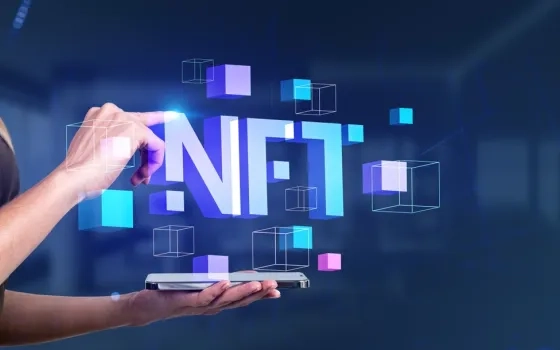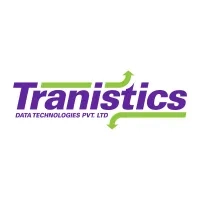As cryptocurrency adoption grows, so does the scrutiny from regulators worldwide. For crypto exchanges and wallet providers, adhering to Anti-Money Laundering (AML) and Know Your Customer (KYC) guidelines is not just a regulatory requirement but a critical factor in building trust and credibility with users. AML and KYC measures are essential for preventing fraud, money laundering, and other illicit activities in the crypto space. In this guide, we’ll explore key AML and KYC principles for crypto platforms and how partnering with the best crypto exchange platform development company can help implement effective compliance solutions.
Why AML and KYC Are Essential for Crypto Exchanges and Wallets
Cryptocurrencies offer a high degree of privacy and freedom, making them appealing for legitimate users and, unfortunately, for those seeking to carry out illicit activities. AML and KYC measures play a crucial role in mitigating risks such as:
- Preventing Money Laundering and Terrorist Financing: AML regulations are designed to stop the flow of illicit funds through crypto exchanges by verifying users’ identities and monitoring transactions.
- Building User Trust: KYC protocols establish a secure environment by verifying user identities, creating a sense of security that encourages more users to engage with the platform.
- Regulatory Compliance: Most jurisdictions now require crypto exchanges to implement AML and KYC protocols to operate legally. Non-compliance can lead to fines, loss of licenses, and reputation damage.
By integrating robust AML and KYC systems, crypto exchanges and wallets not only meet regulatory requirements but also position themselves as safe and trustworthy platforms in an increasingly competitive market.
Key AML and KYC Measures for Crypto Platforms
AML and KYC involve a series of checks and processes to verify user identities and monitor transactions. Here are the key measures every crypto exchange and wallet provider should implement:
1. Identity Verification
Identity verification is the cornerstone of KYC compliance. It ensures that each user’s real identity is verified before they can transact on the platform. This process often involves:
- Document Verification: Users submit government-issued identification documents, such as a passport or driver’s license, to verify their identity. Automated tools use AI to check document authenticity and speed up the verification process.
- Biometric Verification: Facial recognition or fingerprint scans are increasingly used for additional security, ensuring the user is who they claim to be.
These checks prevent anonymous users from accessing the platform, reducing the risk of fraud and illegal activity.
2. Address Verification
In certain jurisdictions, verifying the physical address of users is mandatory. This can involve submitting a recent utility bill or bank statement that confirms the user’s address. Address verification adds an extra layer of KYC compliance, helping to ensure that users meet regulatory requirements and preventing access from restricted locations.
3. Transaction Monitoring
Transaction monitoring is a critical AML measure that involves tracking user transactions to identify and flag suspicious activity. Key components include:
- Pattern Analysis: Algorithms analyze user transactions to detect unusual behavior, such as large withdrawals or rapid trades, which could indicate money laundering.
- Real-Time Alerts: Real-time alerts notify compliance officers of suspicious transactions, allowing for swift investigation and intervention.
- Behavioral Analysis: Behavioral patterns, such as location changes and frequent large transactions, are monitored to detect any unusual activities.
This continuous monitoring process enables exchanges to detect and prevent potential money laundering or other illicit activities before they escalate.
4. Risk Assessment and Customer Due Diligence (CDD)
Risk assessment categorizes users based on factors such as transaction volume, trading patterns, and geographic location to assess their risk level. Customer Due Diligence (CDD) includes measures like verifying identity and assessing the risk of individual users. Higher-risk users, such as those from regions with weak AML regulations, may require Enhanced Due Diligence (EDD), which includes additional checks and monitoring.
5. Ongoing Monitoring and Updating Records
AML and KYC compliance isn’t a one-time process. Platforms must regularly review and update user records, especially when a user’s risk profile changes. This can involve updating KYC data annually or conducting spot checks based on user activity. Ongoing monitoring keeps user records up to date and ensures compliance as regulations evolve.
Best Practices for AML and KYC Compliance
- Implement Automated Solutions: Manual KYC processes can be time-consuming and prone to errors. Automated tools speed up document verification, pattern analysis, and other checks, improving efficiency and accuracy.
- Stay Updated on Global Regulations: AML and KYC regulations differ by region. The best crypto exchange platform development company will ensure your platform remains compliant with regulations across jurisdictions, including US FinCEN, EU AMLD5, and FATF guidelines.
- User Education and Transparency: Inform users about the importance of KYC and AML measures. Transparency about security practices builds trust and encourages users to complete verification processes.
- Partner with a Reputable Development Company: Building and maintaining an AML and KYC-compliant platform is complex. Partnering with an experienced development company ensures that your crypto exchange or wallet has the tools necessary for secure and compliant operations.
The Role of a Crypto Exchange Platform Development Company
The technical requirements for AML and KYC compliance are complex and continually evolving. Partnering with the best crypto exchange platform development company can help exchanges and wallet providers implement compliant, scalable solutions while focusing on the user experience. Here’s how a reputable development partner can help:
- Customizable KYC and AML Solutions: An experienced development company can create KYC and AML protocols tailored to your specific regulatory requirements. They can integrate various identity checks, transaction monitoring systems, and automated alerts into your platform.
- Advanced Security Protocols: Security is a top priority in crypto exchange development. Development companies can implement data encryption, secure data storage, and two-factor authentication to protect sensitive user information.
- Compliance Updates: Regulations change frequently, and crypto platforms need to stay compliant. A development partner ensures your platform’s compliance features stay up-to-date, minimizing legal risks.
- User-Friendly Design: KYC processes should be secure yet user-friendly. An experienced development company designs platforms with an easy-to-follow KYC journey, ensuring a seamless experience while maintaining high-security standards.
Challenges and Future Trends in AML and KYC for Crypto
As the crypto landscape evolves, so will AML and KYC practices. Potential future trends include:
- Blockchain-Based Digital IDs: Blockchain-driven digital identities could streamline KYC processes across platforms, allowing users to complete KYC once and share verified data across multiple exchanges.
- AI-Powered Compliance Tools: Artificial intelligence could enhance AML monitoring by learning from patterns and identifying complex fraudulent behaviors in real time.
- Regulatory Convergence: As crypto becomes mainstream, regulations are expected to become more unified across regions, making global compliance slightly easier for crypto exchanges and wallets.
Conclusion
For crypto exchanges and wallet providers, AML and KYC compliance is essential for preventing fraud, building user trust, and adhering to regulatory standards. Implementing robust identity verification, transaction monitoring, and risk assessment processes helps ensure a secure environment for users. Partnering with the best crypto exchange platform development company can simplify compliance by providing the tools, technology, and expertise needed to build a secure, user-friendly, and compliant platform.
As AML and KYC standards evolve, staying proactive in compliance is key. Crypto exchanges and wallets that prioritize these practices protect their users and establish themselves as trustworthy players in the rapidly growing digital finance space.



























